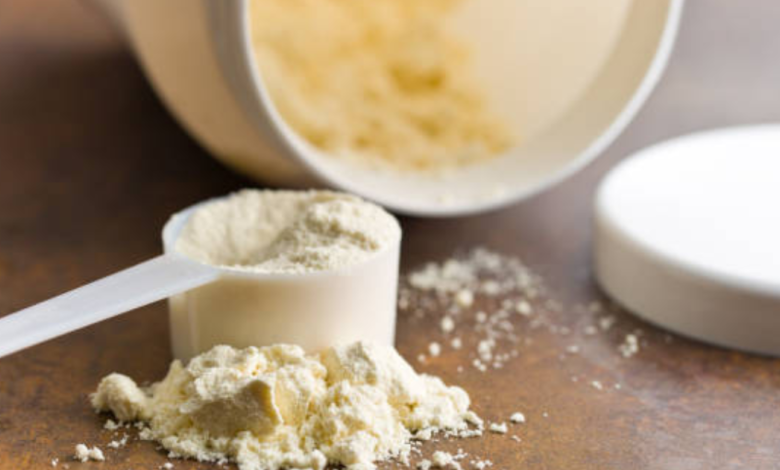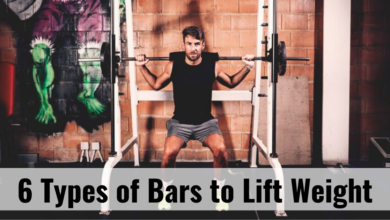Can We Take Protein Powder Without Workout?

Protein powder has become increasingly popular for fitness enthusiasts and athletes seeking a convenient protein supplement. However, a common question emerges: Can protein powder be consumed without regular workouts? In this article, we will delve into the implications and potential benefits of incorporating protein powder into one’s diet without engaging in exercise. We will consider different perspectives such as nutrition, muscle development, weight management, overall health, and address the question: “Can we take protein powder without a workout?”

Understanding Protein Powder
Individuals seeking to increase their protein intake commonly use protein powder, which is a popular dietary supplement. Typically, it derives from various sources such as whey, casein, soy, or pea, and it comes in powdered form.
The Protein powders offer a convenient and efficient way to supplement protein needs. Especially for athletes, bodybuilders, and individuals with high protein requirements.
Protein powder has become increasingly popular for fitness enthusiasts and athletes as a convenient means of supplementing their protein intake. However, a common question arises: Can individuals consume protein powder without engaging in regular workouts? In this article, we will delve into the implications and potential benefits of consuming protein powder without exercise, considering various perspectives, including nutrition, muscle development, weight management, overall health, and the use of protein powder without workout.
Consuming protein powder can help individuals meet their daily protein goals. Particularly when it’s challenging to obtain sufficient protein through whole foods alone. You can easily mix it with water, milk, or add it to smoothies and other recipes. However, it’s important to note that protein powder should complement a balanced diet and not replace whole food protein sources.
Protein Powder and Muscle Development
Protein powder plays a significant role in muscle development for individuals involved in strength training and athletic activities. It is a convenient and easily digestible source of protein, which is crucial for muscle repair and growth. When we engage in intense physical exercise, our muscles undergo microscopic damage.
Protein is essential for repairing and rebuilding these damaged muscle fibers, leading to muscle growth and strength gains. Protein powders, typically derived from sources such as whey, casein, or plant-based proteins like soy or pea, provide a concentrated dose of amino acids—the building blocks of protein.
The body readily absorbs these amino acids, enabling efficient muscle recovery and growth. By consuming protein powder shortly after a workout or as part of a balanced diet. Individuals can optimize their protein intake and support muscle development.
Weight Management and Satiety
Weight management and satiety intertwine closely and play crucial roles in maintaining a healthy lifestyle. The Weight management refers to the ability to achieve and maintain a healthy body weight. While satiety refers to the feeling of fullness and satisfaction after a meal. Both are essential for overall well-being.
Effective weight management involves a balance between energy intake and expenditure. Consuming a balanced diet that is rich in nutrients and low in calories, including fiber-rich foods like fruits, vegetables, and whole grains, promotes satiety and prevents overeating. Regular physical activity is vital for weight management as it helps burn calories and build lean muscle mass. However, it’s important to note that adding protein powder without a workout may not provide optimal results.
Various factors influence satiety, including the macronutrient composition of a meal. Protein-rich foods, for example, increase satiety levels.
Incorporating healthy fats and consuming meals with a variety of textures and flavors can also enhance satiety.

Benefits of protein powder
Protein powder has gained popularity as a dietary supplement due to its numerous benefits. Here are some of the key advantages of incorporating protein powder into your diet:
- Muscle Growth and Repair: Protein is essential for building and repairing muscles, and protein powder provides a convenient and concentrated source of this nutrient. It helps stimulate muscle protein synthesis, aiding in muscle growth and recovery after exercise.
- Weight Management: Protein increases feelings of fullness, which helps reduce cravings and overall calorie intake.
- Including protein powder in your diet can support weight loss or weight maintenance goals by promoting satiety and preserving lean muscle mass.
- Convenient and Quick: Protein powder is easy to prepare and consume, making it a convenient option for those with busy lifestyles. You can mix it with water, milk, or blend it into smoothies, providing a quick and hassle-free way to increase your protein intake.
- Nutrient Profile: Many protein powders are fortified with essential vitamins and minerals, enhancing their nutritional value. They can be a good source of nutrients like calcium, iron, and B vitamins, contributing to overall health and wellbeing.
- Versatility: Protein powder comes in various forms and flavors, allowing for versatility in its use. It can incorporate a wide range of recipes, including pancakes, protein bars, and homemade snacks, making it a flexible ingredient to support your dietary preferences and goals.
While protein powder offers several benefits, you should not consider it a substitute for a well-balanced diet. It’s always advisable to consult a healthcare professional or a registered dietitian before starting any dietary supplement regimen.
Can we take protein powder without workout?
Indeed, it is possible to consume protein powder without engaging in a workout. Protein powder serves as a concentrated protein source vital for muscle repair, growth, and overall bodily functions. While commonly associated with fitness and exercise, the benefits of protein powder extend beyond that realm, allowing individuals to enjoy the advantages of protein powder without requiring a workout.
Protein is an important macronutrient that supports tissue repair, aids in the production of enzymes and hormones, and helps maintain a healthy immune system. It is especially crucial for individuals with higher protein needs, such as athletes, older adults, and those recovering from injuries or surgeries.
Taking protein powder without working out can still be beneficial in certain situations. For example, if you have difficulty meeting your daily protein requirements through whole foods alone, protein powder can supplement your intake. It can also be useful as a convenient and easily digestible protein source for individuals with busy lifestyles or dietary restrictions.
However, it is important to note that protein powder should not replace a balanced diet. It is best to consult with a healthcare professional or registered dietitian to determine the appropriate protein intake and to ensure it aligns with your specific health goals and needs.
Protein powder as a dietary supplement
Athletes, fitness enthusiasts, and individuals seeking to increase their protein intake commonly use protein powder, a popular dietary supplement. It derives from various sources such as whey, casein, soy, or plant-based alternatives like pea, hemp, or rice protein, and it is a concentrated source of protein.
Protein is essential for building and repairing tissues, supporting muscle growth, and maintaining overall health. Protein powder provides a convenient and easily digestible form of protein that you can quickly consume before or after workouts, assisting in the promotion of muscle recovery and development.
One of the key advantages of protein powder is its versatility. It can be mixed with water, milk, or added to smoothies, shakes, or baked goods, allowing individuals to incorporate it into their diet in a way that suits their preferences and dietary needs.
Nutritional Considerations
Nutritional considerations play a crucial role in maintaining optimal health and well-being. A balanced diet that includes a variety of nutrient-rich foods is essential for meeting the body’s nutritional needs. Proteins, carbohydrates, fats, vitamins, minerals, and water are all vital components of a healthy diet.
Proteins are essential for the growth, repair, and maintenance of body tissues, while carbohydrates supply energy for daily activities. Healthy fats, like those in nuts and avocados, support brain function and aid in the absorption of fat-soluble vitamins. However, it is important to note that consuming protein powder without engaging in workout may not provide the desired benefits.
Vitamins and minerals are essential for various bodily functions and are obtained through fruits, vegetables, and whole grains. Water is fundamental for hydration, digestion, and regulation of body temperature.

Conclusion
In conclusion, while protein powder is commonly associated with workouts and physical activity, it can still be consumed without engaging in exercise. Protein is an essential macronutrient that supports various bodily functions and promotes muscle repair and growth.
Therefore, individuals who have specific dietary needs, struggle to meet their protein requirements through food alone, or are looking to supplement their diet can consider protein powder as an option. However, it is important to consult a healthcare professional or a registered dietitian to ensure appropriate usage and dosage based on individual needs and goals.
FAQs
Can you take protein powder without working out?
Yes, you can take protein powder without working out, but it may not provide as much benefit.
What happens if I drink whey protein without working out?
Drinking whey protein without working out may not provide significant benefits and could lead to unnecessary calorie consumption.
What happens if I eat protein and don’t exercise?
If you eat protein but don’t exercise, the excess protein may be stored as fat and not utilized efficiently.
Is protein powder only for gym?
No, protein powder can be used by anyone looking to increase their protein intake, not just for gym-goers.



